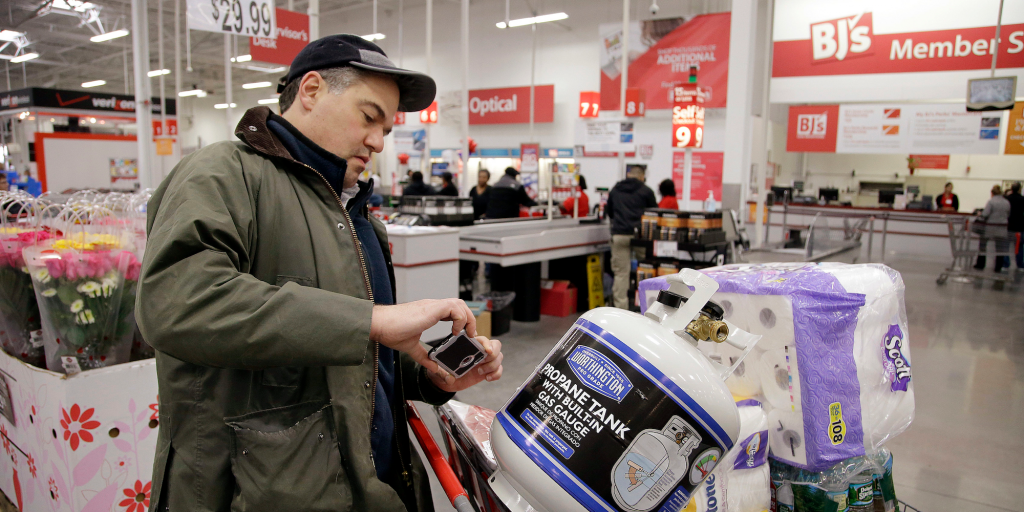- Investors in small-cap stocks have priced an 80% chance of recession, Bank of America said Wednesday.
- If recession risks rise, large-cap stocks are more vulnerable to further losses than small-caps.
- The Russell 2000 small-caps gauge has lost 28% from its peak vs. the S&P 500's 17% peak-to-trough decline.
Investors have yanked small cap stocks into a bear market during 2022 but the Russell 2000 index's underperformance against the S&P 500 makes the large-cap gauge more vulnerable to further losses if recession risks increase, according to Bank of America.
The Russell 2000 has lost about 28% of its value since its peak in November through Monday's session. The index tracks small cap companies, which are widely considered more exposed to economic growth and slowdowns than large caps companies. The large cap S&P 500 index has lost about 17% since its all-time high in early January.
"If the probability of a recession continues to rise, both indices likely have further to fall – but historical moves suggest greater downside risk potential from current levels for large than small," Bank of America equity strategist Jill Carey Hall said in a research note published Wednesday.
The overall US equity market has been battered this year in part by investors' fears that the world's largest economy will fall into recession as the Federal Reserve quickly raises borrowing costs to tame decades-high inflation. The economy, which had been recovering from the COVID-induced blow, contracted by 1.4% in the first quarter of 2022 from the fourth quarter of 2021.
Small-caps have declined by 36% on average during recessions, but with the Russell 2000 already down by almost 30% from its peak, investors have priced in a nearly 80% chance of recession, the bank said.
The S&P 500's 17% peak-to-trough fall "so far suggests the index may be pricing in ~50% chance of a recession," BofA said, noting the index has declined about 32% on average around recessions.
"Corporate guidance and sentiment have weakened, but so far this earnings season small caps have seen a bigger beat, and importantly, much better guidance than large caps," said Carey Hall.
The stock selloffs have resulted in lower valuations, with large caps trading at their weakest levels since the coronavirus outbreak began to spread, while small caps were trading below COVID levels and were the cheapest since 2011. The Russell 2000 forward price-to-earnings ratio has fallen to 12.5x from 14.2x, and the large cap Russell 1000 index P/E has declined to 17.6x from 19.5x.
"Our economists believe any recession in '22 or '23 would likely be mild given limited cyclical excesses in the economy," wrote Carey Hall, noting a recession is not the bank's base case. BofA economists recently lowered their 2022 GDP forecast by 0.6 percentage points to 2.7% and said they see elevated recession risks in 2023.

